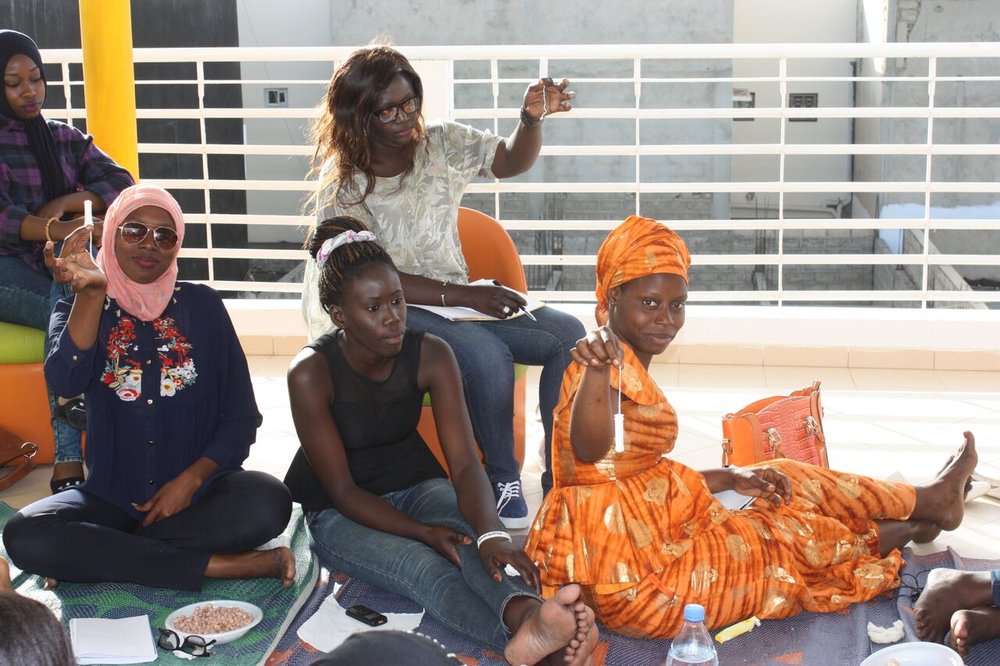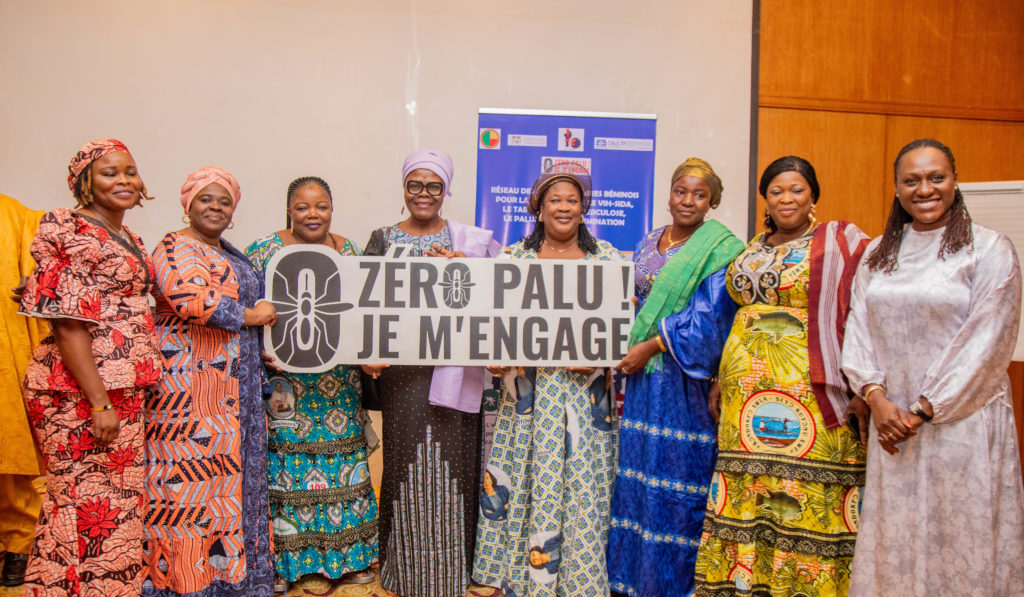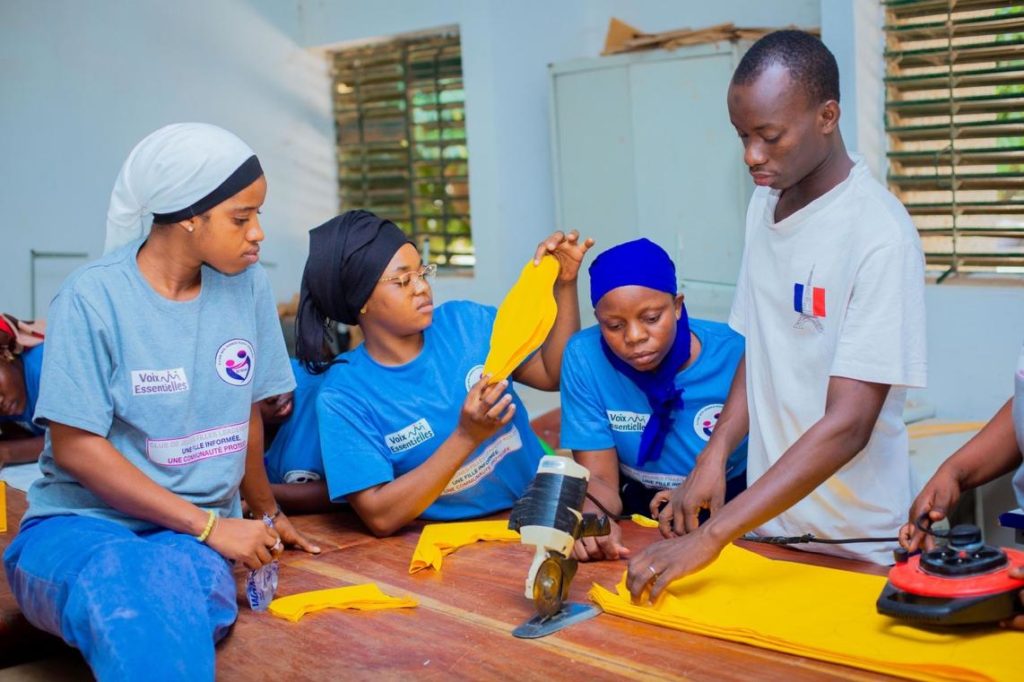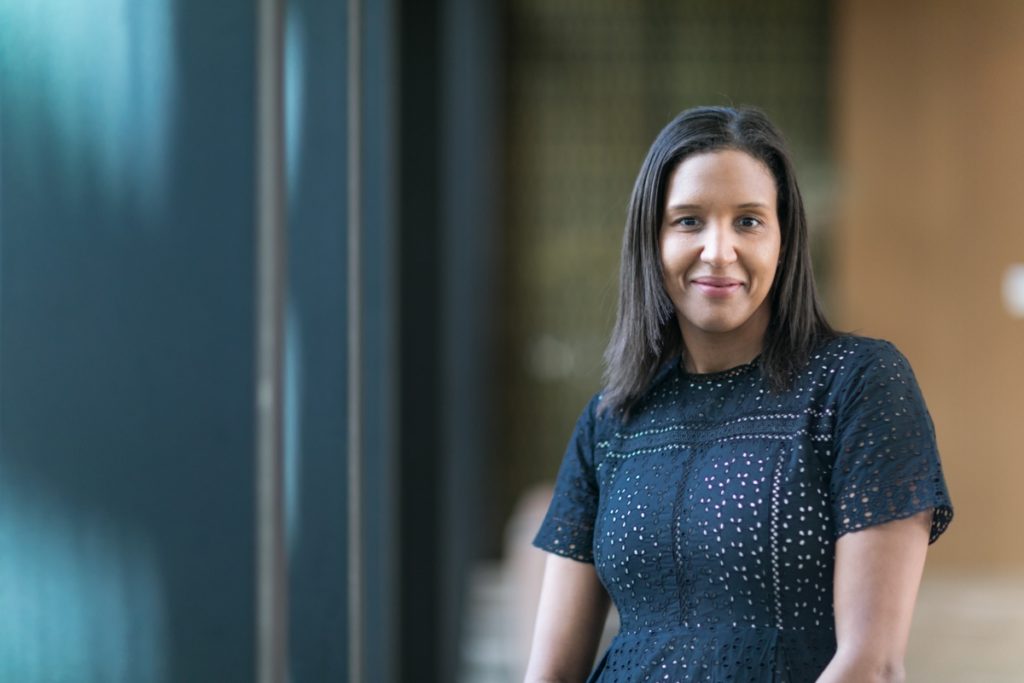Changing perceptions around menstrual hygiene management and why it’s important

Celebrated worldwide every 28 May, Menstrual Hygiene Day raises awareness about menstrual hygiene management (MHM) and the important role it plays in improving the wellbeing of women and girls. Throughout the year, Speak Up Africa prioritizes MHM as a key focus area for the organization, impacting how menstrual health is talked about and advocated for across West Africa.
 Young women from Soeur de Coeur participate in a menstrual hygiene management workshop at the Speak Up Africa Lab. The workshop teaches participants about the diversity of menstrual products available to help them manage their periods well.
Young women from Soeur de Coeur participate in a menstrual hygiene management workshop at the Speak Up Africa Lab. The workshop teaches participants about the diversity of menstrual products available to help them manage their periods well.
According to a 2015 report from United Nations Population Division, fifty-one percent of the global female population is of reproductive age. This means that more than 1.8 billion women and girls around the world are in need of information, products and adequate sanitation facilities to manage their monthly periods.
However, in many societies, cultural stigmas, myths and taboos are associated with menstruation. Menstruating women and girls are thought to be contaminated and impure. They are often forced into seclusion, prevented from participating in daily activities, have limited or no access to appropriate toilets and handwashing facilities, and are often subjected to feelings of shame and embarrassment. This directly affects their self-esteem, health and education, and continues to strengthen gender inequalities.
In sub-Saharan Africa, one girl out of ten does not go to school during her menstrual cycle, which corresponds to about 20% of school time over a year, with some dropping out of school completely after getting their first period. Missing school can translate into lower educational outcomes for girls, which can have lifelong implications. Despite this, menstrual hygiene management (MHM) continues to be a low priority, ignored by many in the water, sanitation, reproductive health and education sectors.
In 2016, in response to the limited work being done to help women, girls, and even men, understand the importance of MHM, Speak Up Africa (SUA) created the “No Taboo Periods” campaign, which focuses on helping everyone in the community understand the role MHM plays in enabling women and girls to reach their full potential.
“As an organization, our job is to ‘speak up’ and this subject matter is close to our hearts. There is a lot to be done, but we want to create a new normal around menstrual hygiene management. Giving woman and girls access to reliable information, synthesizing men around the topic, and encouraging policymakers to prioritize MHM are key to improving the health, education and living conditions of women and girls. We want to be a part of keeping MHM at the top of both social and political agendas,” says Yacine Djibo, Executive Director of Speak Up Africa on why the campaign is necessary, despite the challenges that come with going against traditions. “Girls have a right to know how to manage their menstruation. Women have the power to make their own decisions.”
Breaking the Silence
Since its launch, “No Taboo Periods” has continued to “break the silence” around MHM and uses education as the main tool for having countercultural conversations around menstrual hygiene and towards changing perceptions. By advocating for the inclusion of MHM in WASH (water, sanitation and hygiene) policy discussions, creating learning materials that help children and adults understand the realities of MHM, supporting the construction of gender-friendly toilets, and providing workshops and trainings for students, teachers and others in the community, Speak Up Africa has maximized its reach, touching more than 11,000 people in 2017 alone.
 Gender Specialist Selly Ba delivers menstrual hygiene management trainings and workshops for Speak Up Africa. Here she uses one of the MHM tools developed by SUA during a training for teachers at l’Ecole Ibra Seck in Rufisque, Senegal
Gender Specialist Selly Ba delivers menstrual hygiene management trainings and workshops for Speak Up Africa. Here she uses one of the MHM tools developed by SUA during a training for teachers at l’Ecole Ibra Seck in Rufisque, Senegal
Recent trainings and workshops have been focused on educating diverse groups of community members, including male and female high school students at a special International Women’s Day event in Senegal’s Thies region; Special Olympic coaches, who, during their workshop, were given the skills they need to facilitate MHM awareness activities for people living with intellectual disabilities; and a mostly male teaching staff at l’Ecole Ibra Seck, a primary school in Rufisque, Senegal.
At Ibra Seck, Speak Up Africa worked with administrators and staff to exemplify why starting young with good hygiene practices has a lasting effect and supported the construction of improved toilet facilities by request of Ndioro Nidaye, Coordinator of the Francophonie’s Network for Gender Equality, who was once a student at the school.
“It is important to undertake this type of project in schools, and specifically with this age group, because it fills an economic, social and especially human gap by facilitating girls’ contribution to the dynamics of wealth creation and growth,” remarked Prof. Ndiaye. “I believe it is in fact a continuation of our struggle for the rights of women, especially girls, to protect their rights to privacy and to live in dignity.”
Additionally, through the “No Taboo Periods” campaign, SUA has been able to use the Speak Up Africa Lab in Pikine, a Dakar suburb, as a safe haven for women, girls, boys and men to freely exchange on issues related to MHM. The location of the lab also allowed SUA to work closely with the Pikine Health District, ensuring MHM awareness activities are reflected in the health district’s strategy and shared with the Ministry of Health.
MHM and the SDGs
Menstrual hygiene education, reliable handwashing facilities, and private and safe washrooms are important factors that enable girls to attend school, and help meet the targets of both Sustainable Development Goal 4 (SDG4), ensuring inclusive and equitable quality education, and SDG6, ensuring availability and sustainable management of water and sanitation, but taking a comprehensive approach to MHM also meets several other of the SDGs.
 One of the MHM education tools developed by Speak Up Africa for the “No Taboo Periods” campaign. The brochure simplifies hygiene practices including highlighting proper hand and reusable pad washing and menstrual product disposal.
One of the MHM education tools developed by Speak Up Africa for the “No Taboo Periods” campaign. The brochure simplifies hygiene practices including highlighting proper hand and reusable pad washing and menstrual product disposal.
One of the most obvious is SDG5, achieving gender equality and empowering all women and girls. Girls who attend school and participate in classes regularly, focus on creating better lives for themselves, families and communities. Removing barriers around menstrual hygiene helps them become more empowered.
Poor menstrual hygiene practices also impact the health of women and girls, who may contract infections or reproductive system diseases from using old rags or cloths when affordable and hygienic menstrual products are not accessible; and the environment when menstrual waste is disposed of through latrines and toilets for discretion. In this case, MHM education helps to attain SDG3, ensuring healthy lives and promoting well-being, and SDG12, ensuring sustainable consumption and production patterns.
Advocating for a shift in mindset, promoting better sanitation and hygiene practices, and doing more to better understand the challenges around menstrual hygiene management are all interlinked, and necessary for improved and proper menstrual hygiene products, information and infrastructure.


